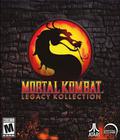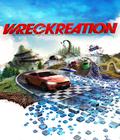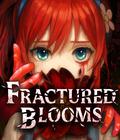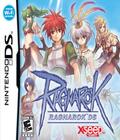Most companies have all but realized that MMOs don't work on consoles, but few have had the inane idea of taking all the worst parts of an MMO and condensing it into a handheld game. Alas, that's just what XSeed and Gravity tried to do with Ragnarok DS, and the results are expectedly atrocious.
Ragnarok DS is a spin-off of the MMO Ragnarok Online, and I hope for the sake of the game's community that the full-fledged online game is more entertaining than its DS counterpart. This version features a paucity of locales, insultingly insipid quests and more boring level-grinding than even a typically obsessive RPG gamer would be willing to handle.
The game stars Ales, a young adventurer with daddy issues who wants to show up his missing father and soothe the soul of his dead mother by becoming an even more famous adventurer than his absentee dad. Of course, everyone knows that the best way to be better than the person you hate is to follow in their exact footsteps even though they have no idea you're doing it. Most players would be well-served to not even try to understand Ales' motivations because doing so is merely a waste of time.
Ales immediately meets Sierra, a mysterious girl with (what else?) amnesia, and the two set off adventuring together. Along the way, they meet up with the typical range of stereotypical RPG sidekicks and villains, none of whom have anything useful to add to the plot and most of whom pepper their speech with far too many ellipses. If you want a compelling narrative in your RPG experience, don't bother with this game.
Exploration and combat are unbearably boring affairs, and the small game mechanics thrown in to spice things up do almost nothing to alleviate the tedium. Players simply drag the stylus across the screen to walk and tap on enemies when they want to fight. The characters then go into auto-battle, leaving the player nothing to do but sit back and wait for the fight to resolve itself. There are skills that can be utilized, but activating them often requires little more than drawing a line across the enemy or sketching a circle on the ground. Battles are also painfully simple; all regular enemies can be easily defeated by basic strikes, and the key to defeating the bosses is to utilize your most powerful skill over and over until the big baddie falls. The simplicity of combat is enjoyable for the first 30 minutes, but then the boredom sets in.
The only thing worse than the fighting is the exploring, as Ragnarok DS attempts to frustrate and torment at every turn. First off, there are only a handful of locations to explore, so the overall game world is extremely tiny when compared to most other titles. In an effort to create the illusion of scale, the game basically creates convoluted paths through most areas with multiple dead ends, forcing characters to wander blindly until they find the map and then take a ridiculously circuitous route to their next objective once they finally know where they're going. Further frustrating things is the fact that the party can only take on one quest at a time, so you may get a job from the tavern, head through several annoying maps to get to the objective, complete the task and return, only to have the next quest send you back to the same place to fetch another item or help another lost family member. Basically, the designers wanted Ragnarok DS to be a much longer game than it actually is, so they artificially extended the title in the worst possible manner.
It doesn't help matters that exploring towns means little more than clicking through menus to go to shops, story locales and inns. The little interaction that players have with townsfolk is even more superficial than normal, and while the menu-driven system may eliminate some of the frustration of fumbling around for your next quest, it also eliminates the fun of ransacking peasants' homes and finding hidden characters.
The game's one and only redeeming feature is the job system, which allows players to explore and experiment in order to create a hero truly to their liking. In addition to your characters' base levels, each individual also has a job level that upgrades independently. Raising this level allows players to access new skills and strengthen old ones, and at a certain point, players can either opt to take the high-level version of their current job or start over with the low level version of another class. This constant accrual of skills and abilities allows players to make a truly versatile character, one who is just as comfortable fighting with a battle ax as he is his bare fists.
Unfortunately, only Ales' job class can be controlled directly, with other characters simply falling into one of the established archetypes and allowing the CPU to decide which skills they'll learn and improve. The issue is offset later once players can create their own guild and hire mercenaries of any job type to fight with them, but it still stinks to only control the growth of one character in the party.
Ultimately, if the job system had been integrated along with a memorable story and exciting battle mechanics, then Ragnarok DS could have been a very compelling game. That isn't the case, though, and instead we're left with a clearly sub-par RPG that manages to do little more than waste time and take up shelf space that should be reserved for better games. The game is also a poor endorsement for Ragnarok Online, as any reasonable gamer would look at the handheld version and decide that he wants nothing to do with an MMO associated with this title. This is a net loss for everyone involved, so do yourself a favor and avoid it entirely.
Score: 5.0/10
More articles about Ragnarok DS











 Ragnarok DS brings the customization and exploration that has millions of PC gamers enthralled to the NDS. In Ragnarok DS, players upgrade their character's armor and weapons by either taking them to a blacksmith to be refined, or by affixing effect cards dropped by defeated monsters.
Ragnarok DS brings the customization and exploration that has millions of PC gamers enthralled to the NDS. In Ragnarok DS, players upgrade their character's armor and weapons by either taking them to a blacksmith to be refined, or by affixing effect cards dropped by defeated monsters.












